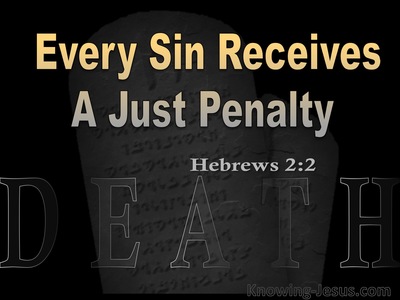◄ What Does Malachi 3:8 Mean? ►
"Will a man rob God? Yet you are robbing Me! But you say, 'How have we robbed You?' In tithes and offerings.
Malachi 3:8(NASB)
Verse of the Day
Many people returned to Jerusalem following their Babylonian exile, and although attempts were made to cleanse the collective heart of the nation, both priests and people fell into apostacy. Soon, all prophetic voices that warned of judgement and called for repentance were stopped, and Israel was plunged into 400 silent years, before the arrival of Jesus the Messiah, the son of David, the son of Abraham.
Malachi was one of God's final messengers who identified the same problems that concerned Nehemiah, including ingratitude towards God, the sacrilegious behaviour of priests and people alike, the practice of divorce, mixed marriages with pagans, and the denial of God's holiness and justice.
The people would not acknowledge their sin nor accept any prophetic accusation. They refused to admit that they, or their forefathers had turned away from God's decrees and disobeyed His voice. When Malachi challenged the nation: "Return to Me, and I will return to you," they did not repent of their sin. Their arrogant response was: "How are we to return?" They refused to admit to their backslidden ways.
The sin identified in this verse was Israel's failure to bring their tithes and offerings to the Lord: "Will a man rob God?" was Malachi's blistering accusation. The Mosaic Law required the people of Israel to pay a tithe, where a tenth of their produce and livestock was given back to the Lord. The tithe was to be brought 'into the storehouse' - into the Temple of God.
The tithe was not a tax to bring His people into bondage. It was given to Israel to remind them that God is their Provider and that all things they have, come from Him. The Lord promised to supply all their needs, according to His riches in mercy, and giving of tithes was to develop generosity of spirit in His people. They were simply giving a portion back to the Lord in thanksgiving for His bountiful supply.
God had promised that if Israel kept His Law and obeyed His voice, they would receive many blessings, while disobedience guaranteed punishment and judgement. The tithe was one of 613 laws given to Israel, and failure to pay their tithe meant they were breaking the Law and defrauding God of what was rightfully His, which would bring a curse upon the nation.
As New Testament believers, we are not under the Mosaic Law, nor are we governed by the giving of tithes or offerings. As Christians we are not under any legalistic requirement but are governed by a higher principle: Grace. Scripture does not require us to give a tithe, but teaches that we should give to the Lord willingly, liberally, and cheerfully. Our offerings to Him should be out of love for all He is, and all He has done for us.
'All that I am He made me, and all that I have He gave me' is a principle that Christians can freely adopt. This does not mean giving every penny we earn into the collection plate or to charitable causes, nor does it mean that living in poverty indicates spirituality. The principle we are to follow is to acknowledge, with a grateful heart and thankful praise, that all we have comes from Him.
In the Old Testament, the people of God were under the Law and their faithful reward for cheerfully giving their tithes and offerings to the Lord, often resulted in material blessings. In the New Testament, we are encouraged to give freely, generously, and cheerfully to the Lord, not for material wealth or financial gain as so many teach, but for the spiritual blessing that abound when God is given His rightful place in each our lives.
My Prayer
Heavenly Father, thank You that we are not under the Law, but under Grace. I praise and thank You for all that You are and all that You have done for me. I pray that my heart would be open before you, and that You would develop in me a loving and giving heart and a spirit of generosity. Help me never to fall into the same prideful trap into which many in Israel fell, when they refused to obey Your Word and robbed You of Your rightful place in their lives. Lord, I freely acknowledge that all that I am, You have made me, and all that I have, You have given to me. I pray that I may live and work for Your greater praise and glory. This I ask in Jesus' name, AMEN.
Choose a Verse from Malachi 3
Malachi 3:8 Further Study
- Malachi 3:8 in the Parallel Bible
- Malachi 3:8 in the Thematic Bible
- Malachi 3:8 Cross References
- Malachi 3:8 Treasury of Scripture Knowing
- Malachi 3:8 Sermons
- Malachi 3:8 Prayers
- Malachi 3:8 Images
- Choose Chapter
Never miss a post















